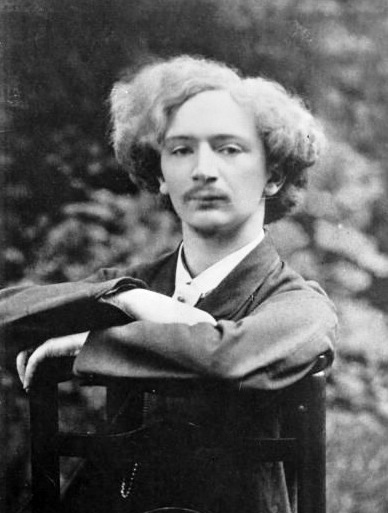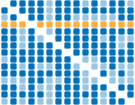Swinburne, Charles Algernon: Magasabb panteizmus dióhéjban (The Higher Pantheism in a Nutshell in Hungarian)
|
The Higher Pantheism in a Nutshell (English)One, who is not, we see: but one, whom we see not, is: Surely this is not that: but that is assuredly this.
What, and wherefore, and whence? for under is over and under: If thunder could be without lightning, lightning could be without thunder.
Doubt is faith in the main: but faith, on the whole, is doubt: We cannot believe by proof: but could we believe without?
Why, and whither, and how? for barley and rye are not clover: Neither are straight lines curves: yet over is under and over.
Two and two may be four: but four and four are not eight: Fate and God may be twain: but God is the same thing as fate.
Ask a man what he thinks, and get from a man what he feels: God, once caught in the fact, shows you a fair pair of heels.
Body and spirit are twins: God only knows which is which: The soul squats down in the flesh, like a tinker drunk in a ditch.
More is the whole than a part: but half is more than the whole: Clearly, the soul is the body: but is not the body the soul?
One and two are not one: but one and nothing is two: Truth can hardly be false, if falsehood cannot be true.
Once the mastodon was: pterodactyls were common as cocks: Then the mammoth was God: now is He a prize ox.
Parallels all things are: yet many of these are askew: You are certainly I: but certainly I am not you.
Springs the rock from the plain, shoots the stream from the rock: Cocks exist for the hen: but hens exist for the cock.
God, whom we see not, is: and God, who is not, we see: Fiddle, we know, is diddle: and diddle, we take it, is dee.
|
Magasabb panteizmus dióhéjban (Hungarian)Látjuk Azt, aki nincs, s Akit nem, létezik; emez itt nem az ott: az azonban ez itt.
Hol és mi és miért? fel is és le is az út, ha dörgés villámra nincs, dörgésre villám se jut.
Hisz, aki kétkedik: s igazán kétely a hit: érv nem bizonyíték: de ha nincs, mit bizonyít?
Hogyan, honnét, minek? árpa, rozs nem lóhere; görbe nem egyenes: de az út fel is, ha le.
Kettő-kettő a négy: s nem nyolc, hogy négy-e a négy; a végzet égbekiált: de a végzetet szabta az Ég.
Mit gondol, kérdezed, hogy mit érez, latold; egyszer fogta kereszt, s Isten kereket old.
Iker a lélek s a test: tudj' Isten, melyik melyik; testre lélek, akár árokba részeg esik.
Résznél több az egész: de kevesebb néha több; persze a lélek a test: de a test nem a lélek előbb?
Egy vagy kettő nem egy: kettő, hogy semmi vagy egy; az igaz se hamis, ha a nem hamis igaz lehet.
Létezett masztodon s pterodaktil-kakasok; volt mammut-istenük: hatökörként fennmaradott.
Minden párhuzamos: kettős gyakran e tény; én is persze, ha te: de te, az más, mint ha én.
Síkból szikla szökik, kőből forrás ha fut; a tyúknak a kakas: a kakasnak a tyúk.
Istent látjuk, de nincs: bár nem látjuk, vagyon; lidi annyi, mint ladi, mikor is ladi a lom.
|




